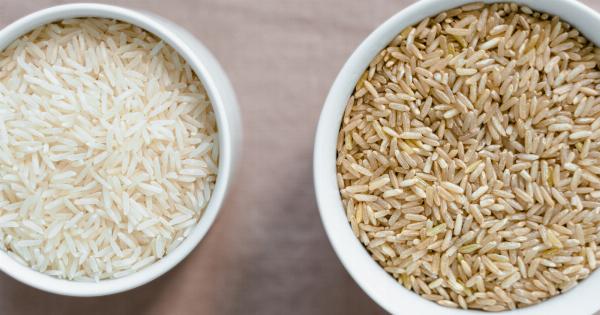Crohn’s disease and ulcerative colitis are two types of inflammatory bowel diseases (IBD). While they share some similar symptoms, they are distinct conditions that affect different parts of the digestive tract.
Here, we’ll take a closer look at the similarities and differences between these two conditions.
Symptoms and Diagnosis
Both Crohn’s disease and ulcerative colitis can cause symptoms such as abdominal pain, diarrhea, and fatigue. However, there are some differences in the symptoms that may help doctors differentiate between the two conditions.
Crohn’s disease can affect any part of the digestive tract, from the mouth to the anus. This means symptoms can vary depending on where in the digestive tract the inflammation is occurring.
People with Crohn’s disease may experience not only digestive symptoms but also joint pain, skin rashes, and other symptoms not directly related to the digestive tract.
Ulcerative colitis, on the other hand, only affects the colon and rectum. Symptoms of ulcerative colitis may include bloody diarrhea, urgency to have a bowel movement, and abdominal cramping.
To make a diagnosis, doctors may use a combination of lab tests, imaging tests, and endoscopy to examine the digestive tract and look for signs of inflammation. In some cases, a biopsy may also be taken to confirm the diagnosis.
Treatment
Both Crohn’s disease and ulcerative colitis are chronic conditions, which means they may require lifelong management. Treatment for IBD is focused on reducing inflammation and managing symptoms to improve quality of life.
Common treatments for IBD include medications such as anti-inflammatory drugs, immune system suppressors, and antibiotics.
In some cases, surgery may be recommended to remove damaged portions of the digestive tract or create a temporary or permanent ostomy.
It’s important for people with IBD to work closely with their healthcare team to develop a treatment plan that’s tailored to their needs.
In addition to traditional medical treatments, some people with IBD may also find complementary therapies such as acupuncture, herbal supplements, or stress-reduction techniques helpful.
Complications
Left untreated, both Crohn’s disease and ulcerative colitis can lead to serious complications. These can include intestinal obstructions, abscesses, and fistulas.
Both conditions can also increase the risk of colon cancer, particularly in cases where the entire colon is affected.
Some people with IBD may also experience complications outside of the digestive tract, such as inflammation of the joints or eyes.
Living with IBD
Living with a chronic condition like IBD can be challenging, both physically and emotionally. It’s important for people with IBD to take care of themselves by eating a healthy diet, getting enough rest, and managing stress.
Connecting with others who have IBD can also be helpful for finding support and learning coping strategies.
While IBD can be a difficult condition to live with, with proper treatment and self-care, many people are able to lead full and active lives.
Conclusion
Crohn’s disease and ulcerative colitis are two types of inflammatory bowel disease that share some common symptoms but affect different parts of the digestive tract.
Treatment for both conditions is focused on reducing inflammation and managing symptoms to improve quality of life.
While living with IBD can be challenging, it’s important for people with the condition to work closely with their healthcare team and take care of themselves to manage their symptoms and complications.


























